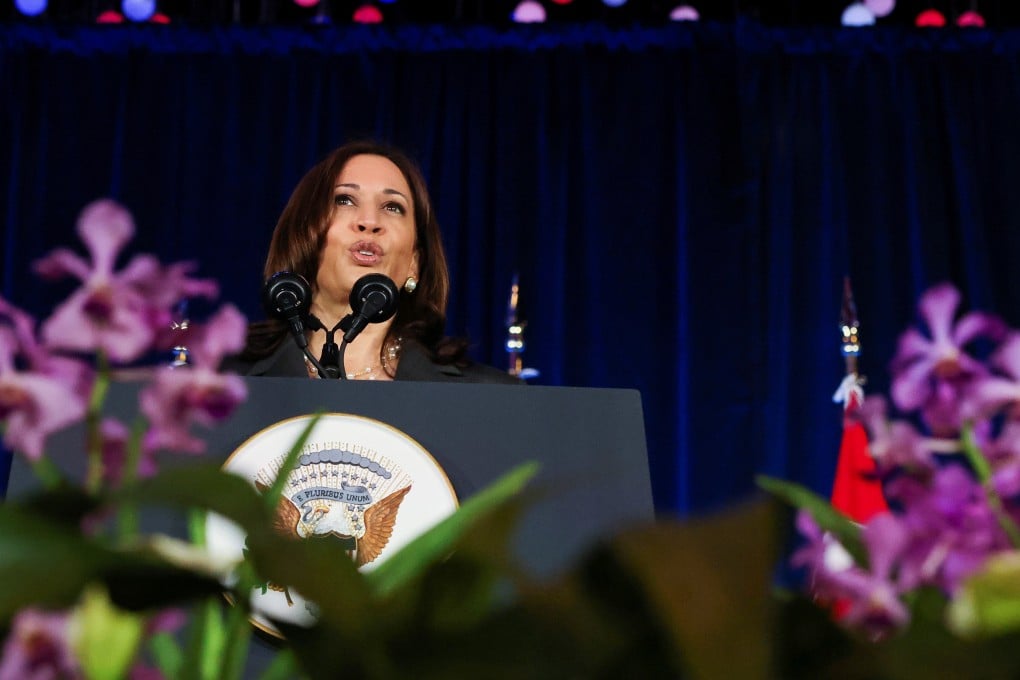Advertisement
US not seeking ‘zero sum’ engagement with Asia but will stand up against coercive China, Kamala Harris says
- Harris said the Biden administration’s vision for Indo-Pacific engagement takes into account regional countries’ disinterest in a ‘zero sum’ mentality
- US vice-president’s visit to Singapore and Vietnam was touted as a diplomatic charm offensive but has been overshadowed by chaos in Afghanistan
Reading Time:5 minutes
Why you can trust SCMP
99+

The United States is well aware that Asian nations are disinterested in engagement based on a “zero sum” mentality even as it seeks to deepen regional ties to challenge China’s threat to the global rules-based order, Vice-President Kamala Harris said on Tuesday.
In a speech in Singapore outlining the Joe Biden administration’s plan for Indo-Pacific engagement, Harris said Washington’s vision was one of “peace and stability, freedom on the seas, unimpeded commerce, advancing human rights, a commitment to the international rules-based order and the recognition that our common interests are not zero sum”.
“Our engagement in Southeast Asia and the Indo-Pacific is not against any one country, nor is it designed to make anyone choose between countries,” she said.
The vice-president said her tour of Singapore and Vietnam was part of an effort to highlight this vision.
Advertisement
“We will invest our time and our energy to fortify our key partnerships including with Singapore and Vietnam,” Harris said in the speech at Singapore’s Gardens by the Bay.
Harris arrived in Singapore on Sunday and departed for Vietnam late on Tuesday.
Advertisement
“The United States will pursue a free and open Indo-Pacific that promotes our interests and those of our partners and allies,” she said.
Like other Biden administration principals who visited Asia recently, Harris identified China’s territorial claims in the disputed South China Sea as a key regional threat.
Advertisement
Select Voice
Select Speed
1.00x